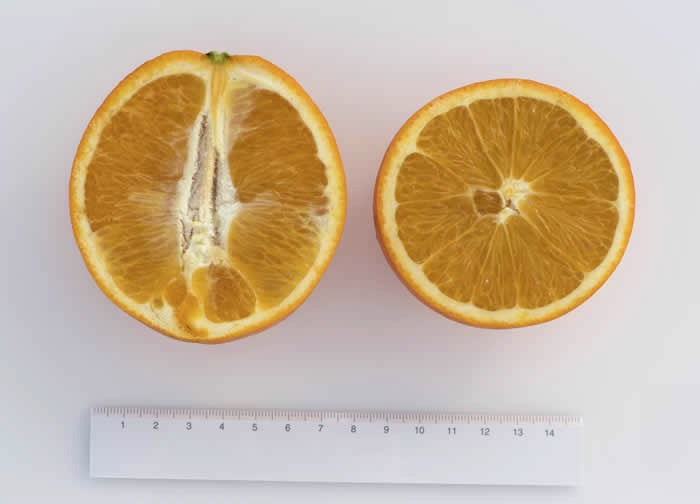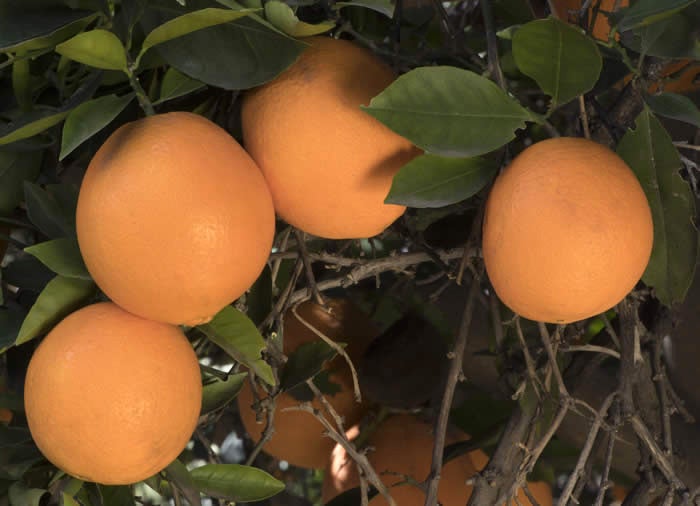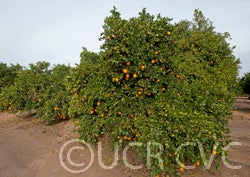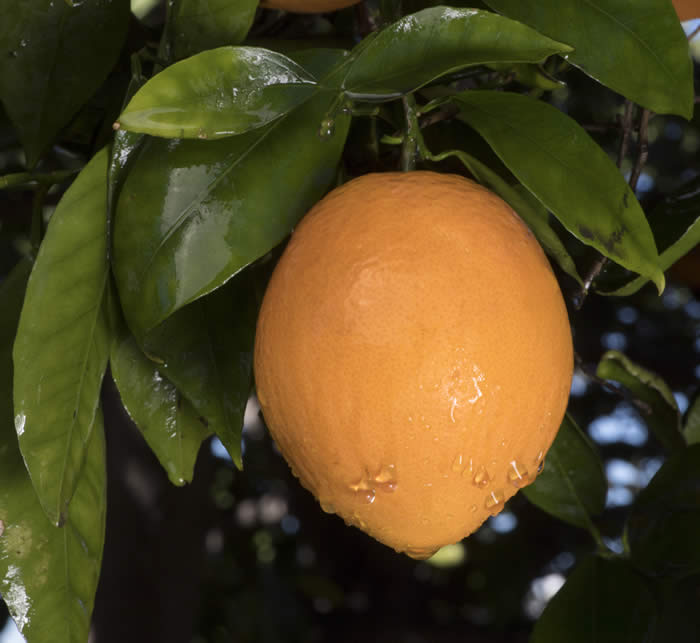Citrus sinensis (L.) Osbeck
CRC 983
PI 539587
Source
Received as budwood from USDA #16--thru A.D. Shamel., Riverside, 1916.
Parentage/origins
The Thomson variety originated as a limb sport of Washington.
Rootstocks of accession
Carrizo citrange, C-35 citrange
Season of ripeness at Riverside
December to January
Notes and observations
EMN, 2/12/1988: Smoother rind than most navels; fruit size seems a bit smallish.
EMN, 4/06/1988: Tree 5-5 (1986 replant) is doing poorly. Why do we need 2 Thomson accessions anyway? Let's keep CRC 969 and discard this one. Probably should use VI 424 or 425 at next propagation go-around.
Description from The Citrus Industry Vol. 1 (1967)
"Fruit medium-large, globose to slightly obovate or ellipsoid; occasionally with collar and commonly with two or three relatively deep and long radial basal furrows; apex usually protruded or broadly nippled or with large open navel; seedless. Less well-colored than Washington. Rind medium-thin and surface smooth and glossy though finely pitted. Flesh well-colored with firm texture; medium juice content; flavor good. Holds on the tree poorly with rapid loss in quality. Very early in maturity (10 days or more in advance of Washington).
Tree less vigorous and more compact than Washington and commonly semi-dwarfed; also less cold- and heat-resistant. Clone unstable, very likely chimeric in constitution, and exhibits tendency toward reversion.
The Thomson variety originated as a limb sport of Washington in Duarte, California, and was named and introduced by the owner, A. C. Thomson, about 1891. Because of the earliness and attractive appearance of the fruit, it was extensively planted for some years and introduced to other navel orange-producing countries such as Algeria, Morocco, Chile, and Australia. Within a few years, however, its faults became so evident that planting was discontinued and most of the California acreage was converted or removed. So far as can be determined, this has been its history elsewhere, with the possible exception of Chile. Except for earliness of maturity, it is inferior to the parent variety in all respects."
Availability
Not commercially available in California.
USDA Germplasm Resources Information Network page for Thomson navel orange CRC 983



